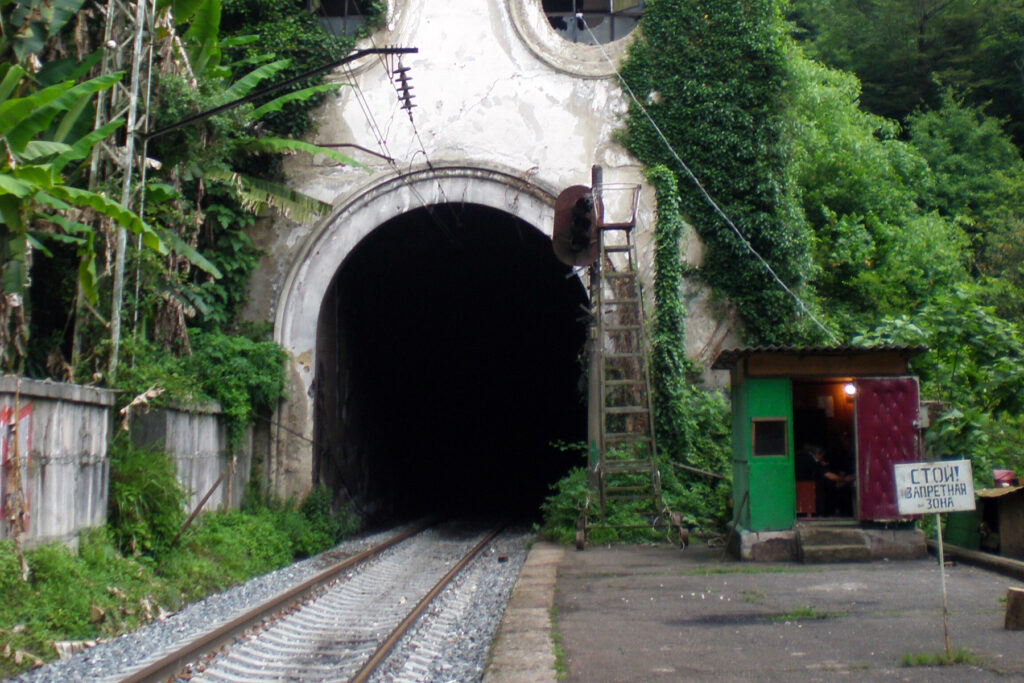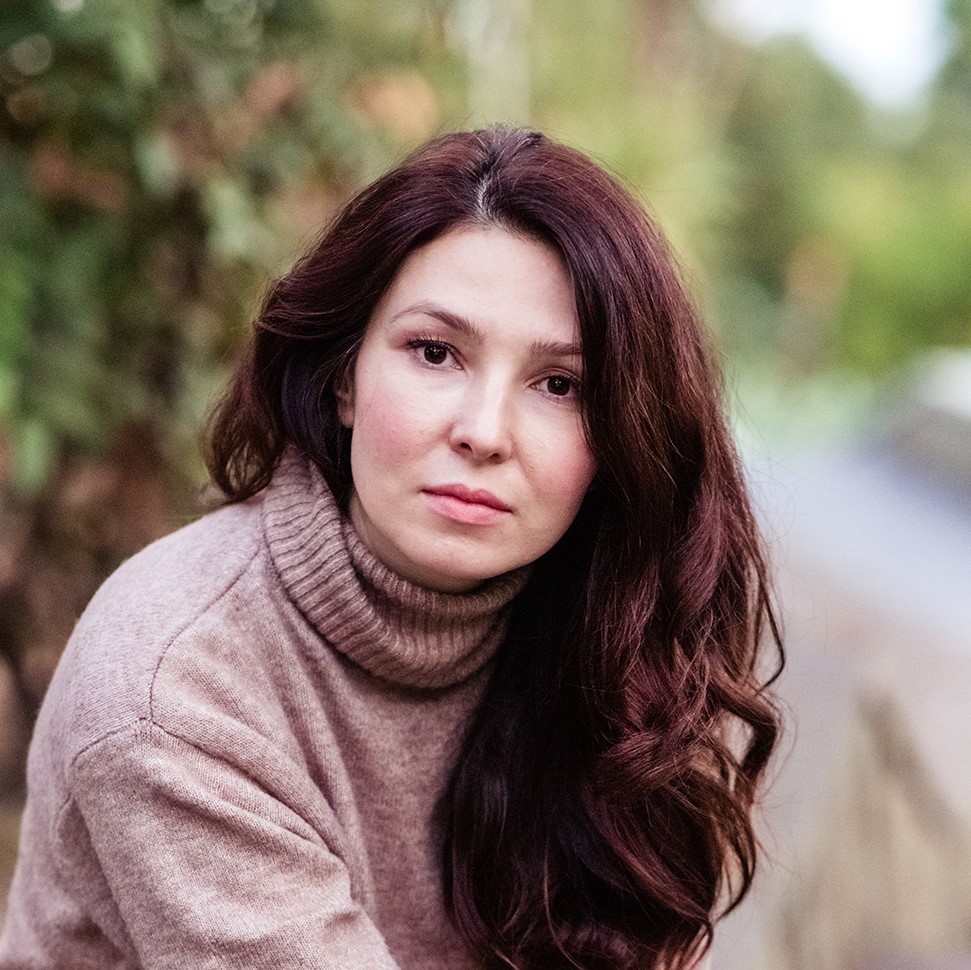The Second Nagorno-Karabakh War has shaken up the status quo in the Caucasus, with one result being the impending reopening of transport links. Keen not to be left isolated and disconnected, Abkhazia’s political class are pushing for the reopening of their own long-dormant railway line, going from Sochi to Yerevan and Turkey.
On 11 February, a delegation of Abkhazian MPs travelled to Moscow to discuss the reopening of the railway link connecting Russia to Georgia, Armenia, and Turkey through Abkhazia. The MPs have appealed to the Russian State Duma, the Abkhaz diaspora in Turkey, as well as the Armenian diaspora in Abkhazia, to help lobby for their cause.
Their initiative comes as connections linking Turkey, Armenia, Azerbaijan, and Russia look set to open up following the Second Nagorno-Karabakh War. Their goal is to include Abkhazia in the newly emerging South Caucasus transit corridors network.
Astamur Logua, an MP in the Abkhazian parliament and the initiator of the appeal told Abaza TV that the Abkhazian railway would have advantages over the proposed route from Russia’s Daghestan to Turkey via Azerbaijan and Armenia.
He said Abkhazia’s proximity to Turkey played in favour of Abkhazia and Georgia, as their section of the railway would be much shorter for Russian–Turkish trade.
‘The ports in Krasnodar Krai are overloaded’, he said, pointing out the huge volume of goods turnover between Turkey and Russia.

As for the political aspect, Logua argued that Abkhazia should show a readiness to build relations with ‘all countries of the region’.
‘We live in one region — Russia, Abkhazia, Georgia, Azerbaijan, Armenia, Iran, Turkey. Why should some forces from other continents interfere in our region? In order to create tensions here? Probably not so much in little Abkhazia, but using us and Georgia, in Russia, Turkey, or Iran’, Logua said.
He said that Abkhazia did not wish to be a bone of contention in the South Caucasus, and even proposed ‘a forum of the states of the region’.
‘There is still an unofficial idea to hold a regional conference, it could be called “For A Peaceful South Caucasus”, where MPs from the participating countries could meet and solve acute and divisive issues in the region.’
‘At least one good outcome would be that no one from the outside comes and brings discord into a peaceful and calm life in our region’, Logua said.
Lessons from history
A possible Abkhazian transit corridor has been discussed at various points over the past two decades. The initiative has, however, never come from Abkhazian politicians until now.
In 1995, a working group dedicated to restoring the railway was created. The issue was raised again in 2003, with the participation of European observers. The issue was last discussed in 2010.
According to Sergey Shamba — a former prime minister who now serves as secretary of the Security Council of Abkhazia and chair of the United Abkhazia party — discussion of the Abkhazian railway reached a stalemate for political reasons each time it was previously initiated.

He said that the obstacles came from neither Sukhum (Sukhumi) nor Tbilisi.
‘At some point, a trilateral Russian–Abkhazian–Georgian commission was created, but it led to nothing. The main reason was that Georgians insisted that the name of the railway should be “the Abkhazian section of the Georgian railway”. We were against it. But such issues could be resolved if there was a will. Obviously, there was none’, Shamba told local media.
According to Shamba, issues arose connected to ‘some powerful countries’ having been interested in ‘cutting Russia off’ from the South Caucasus. He said that by limiting Russia’s influence and scuttling North–South transit corridors, new East–West ones could be created.
Shamba argued that the new status quo has resulted in a realignment of geopolitical forces, where the Russian factor is not so relevant any more.
He says this could make the perspectives for transit through Abkhazia and Georgia much more realistic.
‘In order for the peace process to encompass the entire Caucasus, and to beckon in the beginning of new relations that will make conflicts and hate a thing of the past, all sides must participate in common economic, trade, cultural, and any other joint initiatives’, Shamba said.
Politicians only see politics
The reaction of the Abkhazian political establishment has, in general, been positive about the prospect of an Abkhazian transit corridor. However, there are nuances that make some politicians uncomfortable.
Members of the opposition Amtsakhara party say they are confident that if the Abkhazian terminology is respected, such transit would have a positive effect on the country’s economy and such an opportunity should not be missed.
Avtandil Surmanidze, a member of the political council of Amtsakhara told local media that if the railway was called ‘the Abkhazian railway’ instead of a ‘section of the Georgian railway’, the party saw no other problems.
The Communist Party of Abkhazia has also supported the MPs’ initiative. The chair of the party, Bakur Bebiya, says he wants Abkhazia to be an ‘open country’ and transit is a means to this end.
‘The main political achievement of the people of Abkhazia is freedom and it will always remain inviolable. The world is different today and Abkhazia has the opportunity to become an open country. It’s essential to strengthen trade, economic, and humanitarian links [to Abkhazia’s benefit]’, Bebiya said.
The leader of the Forum of People’s Unity of Abkhazia party, Aslan Bartsits, was less optimistic. He told local media there were too many unresolved problems in Abkhazia, especially energy security.
‘We have barely enough electricity for ourselves. Just imagine what a huge and energy-consuming project a railway is’, Bartsits said.
[Read about Abkhazia’s electricity problems on OC Media: Abkhazia moves to shut down cryptomining as blackouts escalate]

Another problem that has been raised by some is the Abkhazian railway infrastructure itself. In 2010, Russia loaned the Abkhazian government ₽2 billion ($27 million) to repair sections of the railway — a loan they are still repaying.
Meanwhile, the railway tracks require repairs once again, and without major investment, transporting heavy loads over rusty rails would be impossible.
The Georgia factor
The other potential stumbling block, and perhaps the most difficult to overcome, would be securing the agreement of the Georgian Government.
Aslan Bartsits said he thought it was unlikely the Georgian Government would engage with Abkhazia in a way that most Abkhazians expect. He predicted that not a single document where the railway was called ‘Abkhazian railway’ would be signed in Tbilisi in the near future.
‘Is Georgia itself ready for transit through its territory? After all, it would have to sign documents with the Republic of Abkhazia indicated as an equal partner. For now, Georgia claims that Abkhazia is an occupied country and it needs to be de-occupied. It makes no sense for us to talk with such a partner today’, Bartsits said.
‘Georgia is supported by the West, the US. Georgia won’t do anything. More precisely, it won’t be allowed to do anything that contradicts the interests of the West’, Bartsits said.
But Astamur Logua, the initiator of the plan, remains more optimistic, insisting it would be in Georgia’s interest to reopen the railway too.
‘Georgia will lose great transit significance due to the unblocking [of the Armenia–Azerbaijan border].’
‘I really hope that the moment will come when our region becomes unblocked as well’, Logua said.
He said that Abkhazia and Georgia would always be close geographically, and sooner or later they will have to improve their relations.
‘In order not to raise one or two more generations hating each other, in order not to deceive their children, the great patriots of Georgian society should first come to power in Georgia. And they must take responsibility and begin speaking the truth. And the truth is that the Abkhaz people are ancient, that they had their statehood since time immemorial and it has been restored now. They must apologise [for the war] and we can establish peaceful good-neighbourly relations’, Logua said.
Where the Georgian government stands, for now remains unclear. Zurab Abashidze, a Special Representative of the Prime Minister of Georgia for relations with Russia, told OC Media that the issue of restoring the railway had not recently been discussed.
He added that the government’s position remained that this could only be discussed within the ‘process of restoration of Georgia’s territorial integrity’.
The primary geographic terms used in this article are those of the author’s. For ease of reading, we choose not to use qualifiers such as ‘de facto’, ‘unrecognised’, or ‘partially recognised’ when discussing institutions or political positions within Abkhazia, Nagorno-Karabakh, and South Ossetia. This does not imply a position on their status.
With additional reporting from Shota Kincha.




 26 February 2021
26 February 2021




